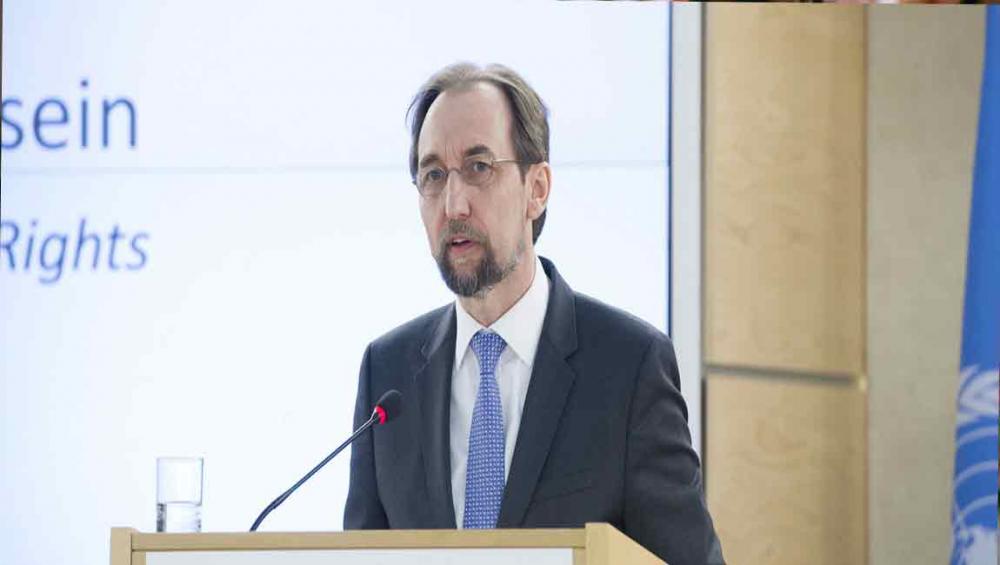Just Earth News | @JustEarthNews | 08 Mar 2018

New York: In a scathing address to the Human Rights Council, the top United Nations rights official on Wednesday warned political leaders who stoke fear and intolerance among their followers for the sake of their own ambitions are merely copying the behaviour of previous generations of once strong, but ultimately catastrophic, leaders and politicians.
“Yours will in the end become a mouse-like global reputation, never the fine example of the leader you think you are,” said Zeid Ra’ad Al Hussen, the UN High Commissioner for Human Rights.
He underscored the universality and fundamental nature – common to everyone – that ultimately they are all human beings, able to feel, love, think and hope; and that the characteristics like colour, race, ethnicity or gender are acquired by virtue of being humans and are secondary in nature.
“The present-day hatred, and its corresponding rising uncertainties, seem to come from humans who view the relationship between the core and the bolted – on characteristics in reverse,” added Zeid.
“In their view, the differences decide everything. But this approach, if each of us were to adopt it, and act upon it, would be an open invitation to human self-annihilation.”
Recalling the life of Nelson Mandela, the values of diversity and tolerance he worked for and the respect he earned, High Commissioner Zied urged political leaders to follow Mandela’s example.
“To deserve global respect, you must begin to follow his example – committing to the spirit and letter of the Universal Declaration of Human Rights,” he said.
The UN human rights chief also painted a bleak picture of situations in more than 50 countries, ranging from an “apocalypse” in Syria to “ethnic cleansing” in Myanmar and anti-migration policies in many European countries and in the United States.
Zeid also praised the “real courage” of all those who stand up for and defend women’s rights, including sexual and reproductive rights, as well as the civil society movements fighting for respect of decency and rights despite overwhelming challenges.
In particular, he noted the MeToo movement, which takes on the abuse and sexual exploitation of women, an expression of solidarity and a force for dignity that is much needed, including in the wealthiest societies.
“Wherever I have travelled I have been privileged to meet women who defy restrictions on their freedom. These resilient and powerful women teach us – have, indeed, taught me – that every individual can help to reshape society, and the world,” he said.